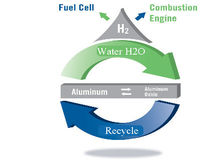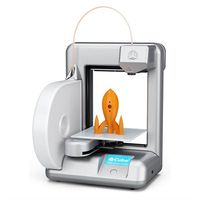Think of this as Volume 17, Number 26 of the newsletter I have written weekly since March, 1997. Enjoy.

fail to appreciate how the future is changing before us.
I know the future isn't what it seemed
to be when I was young. Technology moves through the path of least
resistance, and in my lifetime that has meant Moore's Law. Extending
the exponential gains in computing power made possible by silicon
into other areas of technology – wired and wireless networks,
aluminum and optical drives – has transformed us in many ways
without seeming to change society all that much.
I currently drive a little four-door
hatchback that, in many ways, isn't much different than the Jeep
wagon my dad took to California in 1970. (I inherited it durng my college years, and thank god fashion has made so much progress since the mid-1970s.) I live in a house that has
stood since 1923, the year my mom was born, and looks from the
outside just as it did then.

changed. My lifestyle – sitting at home typing stories, delivering
them via a network – was considered very outre in 1983, when I
first started doing it. Now it's typical, and despite attempts to
make it appear controversial, it's not. What has changed is that
managers are now on 24 hour per day, 7 days a week call, thanks to
technology. They telecommute from airports and taxi cabs. Every
President can get treated like the President of the United States in
that way.
Stores like Wal-Mart could not exist
when we were kids because the technology didn't exist for them. Now
such stores control global supply chains from the store floor, using
RFID to collect orders for China overnight, delivering them from
docks and turning them around within a few weeks instead of months.
Net warehouse space has not increased in 30 years, despite the rapid
increase in global trade, and that's because we can now track every
package, every container, and every factory input cost in real time.
While I was writing these paragraphs, I
got a tweet from Bob Sutor of IBM that sums it all up: “Disruptive
technologies don't just change business processes, sometimes they
make the processes unnecessary and obsolete.”
But this is not about the past. It's
about the future.

been, there are immense changes sitting right on our doorstep.
We now have a foot on the rising price
of energy, and a way to give everyone a stake in the game. The
“energy crisis” has been the dominant theme of my working life,
transferring money and power from America to the Middle East, moving
power within the country from the coasts to Texas. The idea that
“money comes out of the ground” is a pernicious one, one that is
profoundly against humanity, but it's the great economic theme of my
time.
Renewable energy is changing that.
Solar energy supply peaks when it's most needed, when air
conditioners go on in the late afternoon. Wind energy is getting
cheaper. But more important, our ability to move this energy around,
to store it, is dragging our electrical grid kicking-and-screaming
into the 21st century. As the costs of these technology
move below those of other forms of energy, and that's happening much
faster than we anticipated even a few years ago, these changes will
accelerate.
That means nuclear plants will be
mothballed, as coal plants are now being mothballed, not by politics
but by economics and technology. It means more people will be making
their living, or part of it, supplying energy – more people with
more skin in the game means more political stability for everyone. As
the most important form of renewable energy – efficiency – takes
hold in computing and transportation, these changes are going to
accelerate, and power will shift again, rapidly.

reshaped supply chains, moving power to China, so 3D printing is
going to reshape them again. What are called Software Defined Supply
Chains put a premium on manufacturing investment in technology, rather than
in people.
Right now, human labor remains the
biggest factor in the cost of creating products. Software defined
manufacturing, based on 3D printing, means that educated minds will
be the gating factor. This transforms where manufacturing happens,
and who does it. It's a revolution that is just now starting in
specialty, one-of-a-kind products and prototypes, but as the decade
wears on it's going to head into higher-volume applications.
Manufacturing is going to be seen as an application, not a human
process but a technology process.
Internet ubiquity is something we talk
about, but the rate at which it enforces change is only going to
accelerate. We can see what is possible, and necessary, by looking at
what is happening in Kansas City, which has become a haven for
start-ups simply because Google connected it to its fiber network.
Imagine if that kind of connectivity were everywhere.

printing, economics and technology are going to force changes here
where politics has failed. Cable and phone networks have to extend
more bits to people, and charge less per-bit, because otherwise
Google will simply replace them. And as wired bits become more
commonplace, so will wireless bits – by simply adding higher
frequencies to the mix and using them all efficiently, it's now
possible to create 1 GB/S WiFi networks.
Internet ubiquity puts a premium on
your ability to access data, process it quickly into new forms, and
get that knowledge out to its market. Holding data, in libraries or
universities, is giving way to a new economy in which the power of
knowledge increases exponentially as it's shared.
What world will this make for my old
age? I don't know. But I aim to find out, and I hope y'all will come
with me.










